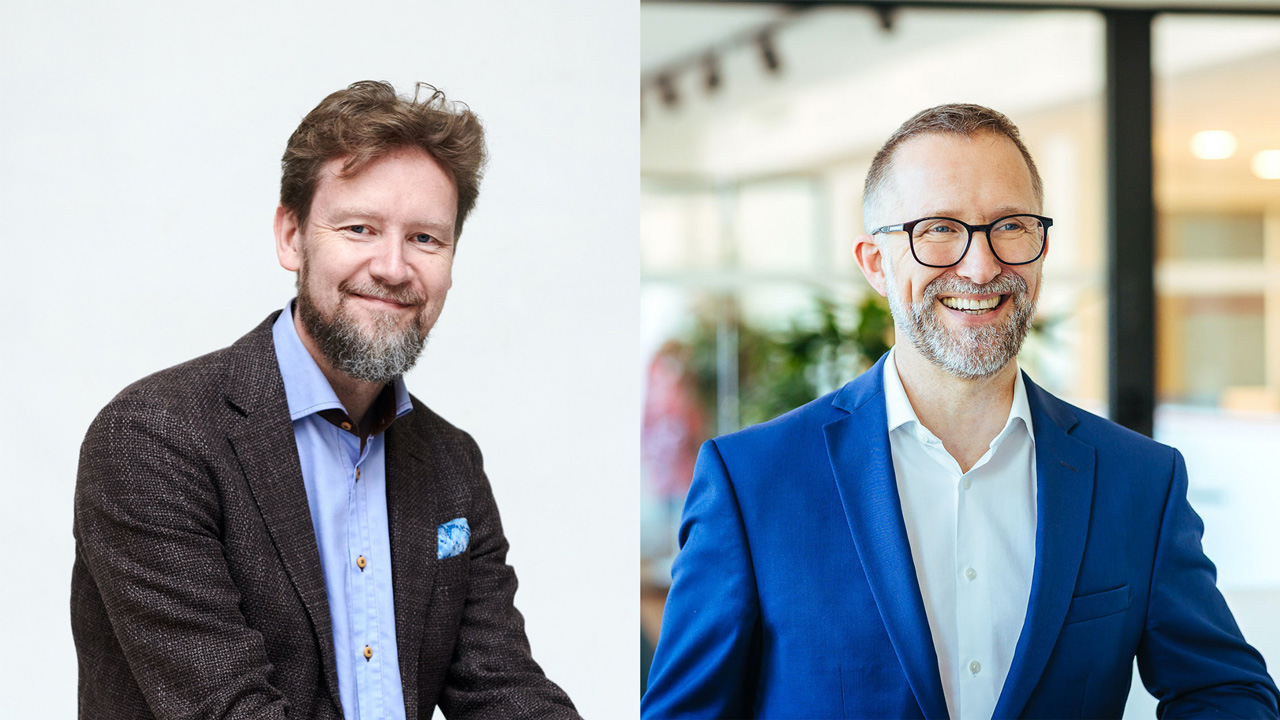Finland now has a significant opportunity to set an example in using the hidden potential of art and creative sectors, write CEO Bernd Fesel and Uniarts Helsinki rector Kaarlo Hildén.

Expectations for the ability of the Culture and Creative Sectors and Industries (CCSI) to generate sustainable economic growth have increased strongly in Europe. The sectors’ share of the EU’s gross domestic product is already 4.4 percent, and it employs approximately 7.6 million people, which is over eight times more than the telecommunications industry. In addition to the direct economic effects and promising growth prospects, the interest in the development of these sectors is related to their ability to build meaningful, ecologically sustainable services. There is demand for the ability of these sectors to bring new perspectives to research and development activities, the funding of which will be significantly increased in Finland in the next few years.
The European Institute of Innovation and Technology (EIT) has also recognised the potential of the Cultural and Creative Sectors and Industries. It aims to invest up to 250 million euros in the coming years to develop EIT Culture & Creativity, an innovation community for the CCSI. EIT Culture & Creativity will have six Co-Location Centers (CLCs) across Europe. These subsidiaries will ensure a close connection with regional and local ecosystems. One will be located in Suvilahti, Helsinki, which represents a significant opportunity for Finland to use the hidden potential of these sectors.
We are facing economic policy issues that are exceptionally difficult to reconcile. Economic growth as a goal is rightly questioned when planetary boundaries have been reached, but financing a welfare society without economic growth also seems difficult. On the other hand, it appears that the connection between economic growth and well-being is broken, when, despite growing prosperity, for example, mental health problems and inequality are increasing.
Our current economic system needs a creative redesign that takes into account these changed premises. Now, the Culture and Creativity sectors are called on to play an increasingly important role in solving these challenges, as they are capable of ecologically sustainable and immaterial value creation that increases meaningfulness. In addition, the creative industries are able to produce innovations that enrich other industries. That is why it is high time to move the Culture and Creativity sectors from the periphery to the centre when envisioning the future of national economies and research and development activities – Finland has the opportunity to do so now and take the lead in Europe.
The special skills of the people working in the Culture and Creativity sectors can be the secret weapon with which we can identify much-needed new perspectives on the renewal of our society. They know how to question current ways of working and the values behind them and dare to look beyond social norms and across borders. Creative education guides students to look at people holistically: we are thinking, feeling, and physical beings. Such a holistic view of people is valuable in research and development activities. It aims to understand the deeper experiential meaning and relevance of the thing being developed for people, instead of just evaluating the commercial benefit, for example. The Culture and Creativity sectors can imagine these future experiences and introduce them to people’s hearts – making them use such services daily and thus choose a greener way of life in order to save the planet.
It is time to learn to develop smarter. Many of the great innovations of the past decades have had unforeseen and dramatic side effects. At the same time, while new development and growth has been created somewhere, dire social and ecological problems have arisen elsewhere. In order for research and development activities to be sustainable, it is necessary to be able to take the overall effects of changes on both people and nature into account better than at present. Without the Culture and Creativity sectors, our view of the future will be inherently incomplete. Given the multiple crises we face as a society, we cannot afford to limit our view of reality any longer.
Bernd Fesel
Interim CEO of the EIT Culture & Creativity
Kaarlo Hilén
Rector of Uniarts Helsinki
The text was originally published on Kauppalehti on Thursday, 13 April 2023, as part of a series of opinion pieces on the impact of art as part of the society.
Text originally published by Uniarts Helsinki here: https://www.uniarts.fi/en/articles/opinions/our-economic-system-needs-a-creative-redesign/



